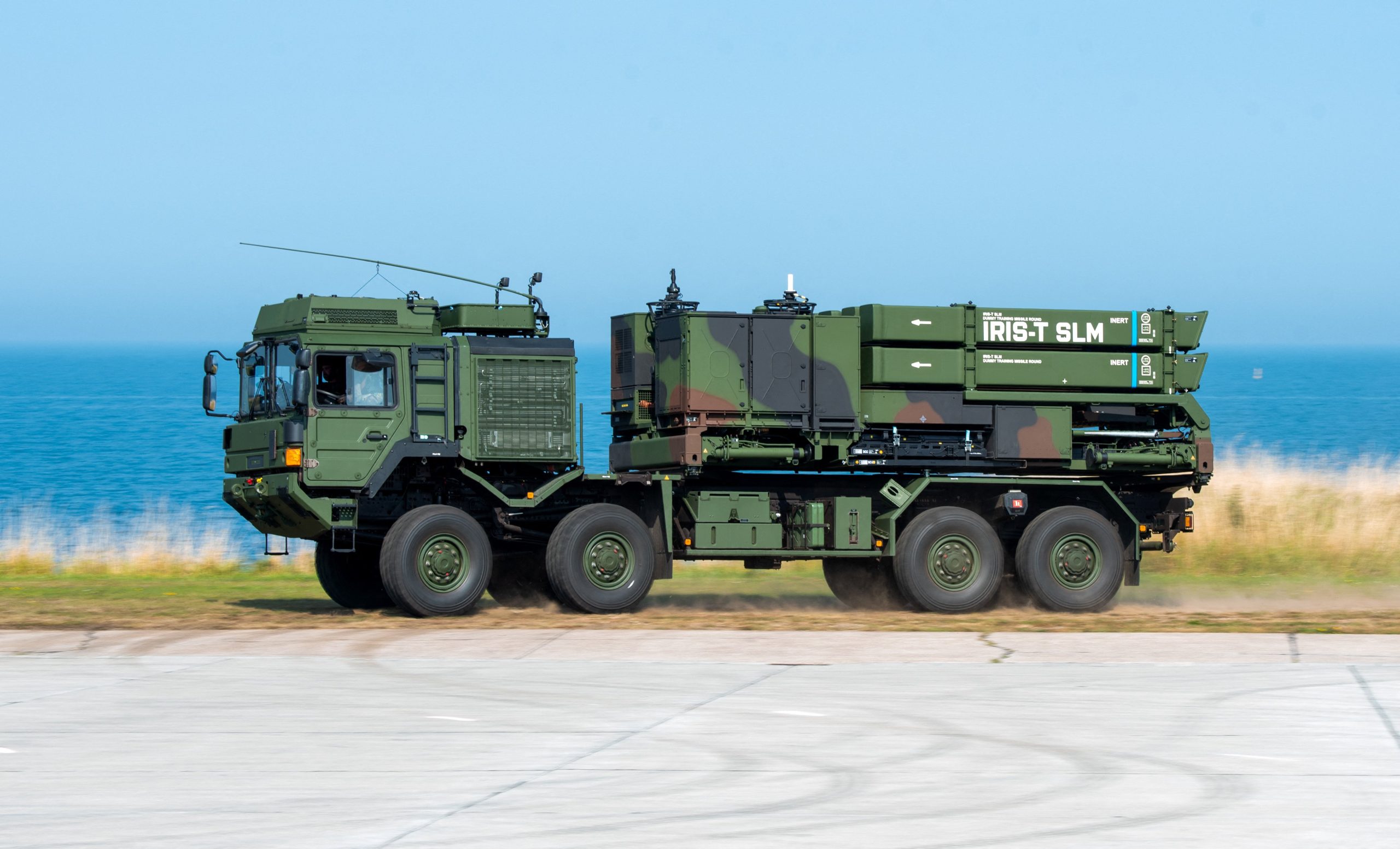Pakistan is reportedly considering the acquisition of the German-made IRIS-T SLM air defence system in response to the growing effectiveness of India’s BrahMos supersonic cruise missiles, which have exposed the shortcomings of Pakistan’s existing Chinese systems like the HQ-16 and HQ-9. According to recent reports, the German system has performed impressively in Ukraine against Russian P-800 Oniks missiles—comparable in speed and profile to the Indo-Russian BrahMos—demonstrating an ability to intercept high-speed cruise threats.
Developed by Diehl Defence, the IRIS-T SLM system includes radar units, an operations centre, and multiple mobile launchers in a modular 20-foot frame, facilitating quick deployment. Originally intended for Egypt, several units of the system were diverted to Ukraine during the ongoing conflict. Since its operational induction, the system has reportedly downed over 60 targets, enhancing its reputation as a reliable point air defence solution. A single unit of IRIS-T SLM is estimated to cost around $200 million.
The BrahMos missile, with a speed of Mach 2.8 to Mach 3 and a range nearing 400 km in newer variants, has posed significant challenges to legacy air defence systems. India’s deployment of BrahMos across its Army, Navy, and Air Force has increased Pakistan’s urgency to upgrade its missile defence infrastructure, especially as India continues to refine its precision strike capabilities.
Despite facing a deep financial crisis, with mounting foreign debt and dependence on aid, Pakistan has opted to prioritize defence spending. The country secured an $800 million loan from the Asian Development Bank and another $1 billion from the International Monetary Fund in the past month alone. At the same time, it scrapped domestic development projects worth over Rs 1,000 billion while increasing its defence budget by 18%. This move has drawn criticism from India, which has objected to international financial assistance being routed to Pakistan, alleging the funds could support terrorism-related infrastructure.
Meanwhile, Germany’s defence relationships span both sides of the subcontinent. Diehl Defence, the maker of IRIS-T, is also involved in Indian defence projects through collaboration with Thyssenkrupp Marine Systems, contributing to the Rs 70,000 crore Project 75I to build six advanced submarines for the Indian Navy. Additionally, Reliance Defence has entered into a strategic partnership with Diehl Defence to manufacture the Vulcano 155mm artillery shells in India—used for precision long-range attacks—with at least 50% indigenous production. This partnership is expected to generate revenue of up to Rs 10,000 crore and further bolster India’s firepower in modern warfare.
As Pakistan eyes Western defence technologies to catch up with India’s evolving arsenal, its financial vulnerability and geopolitical dependencies make such procurements complex and controversial, especially amid growing Indo-German defence ties.













